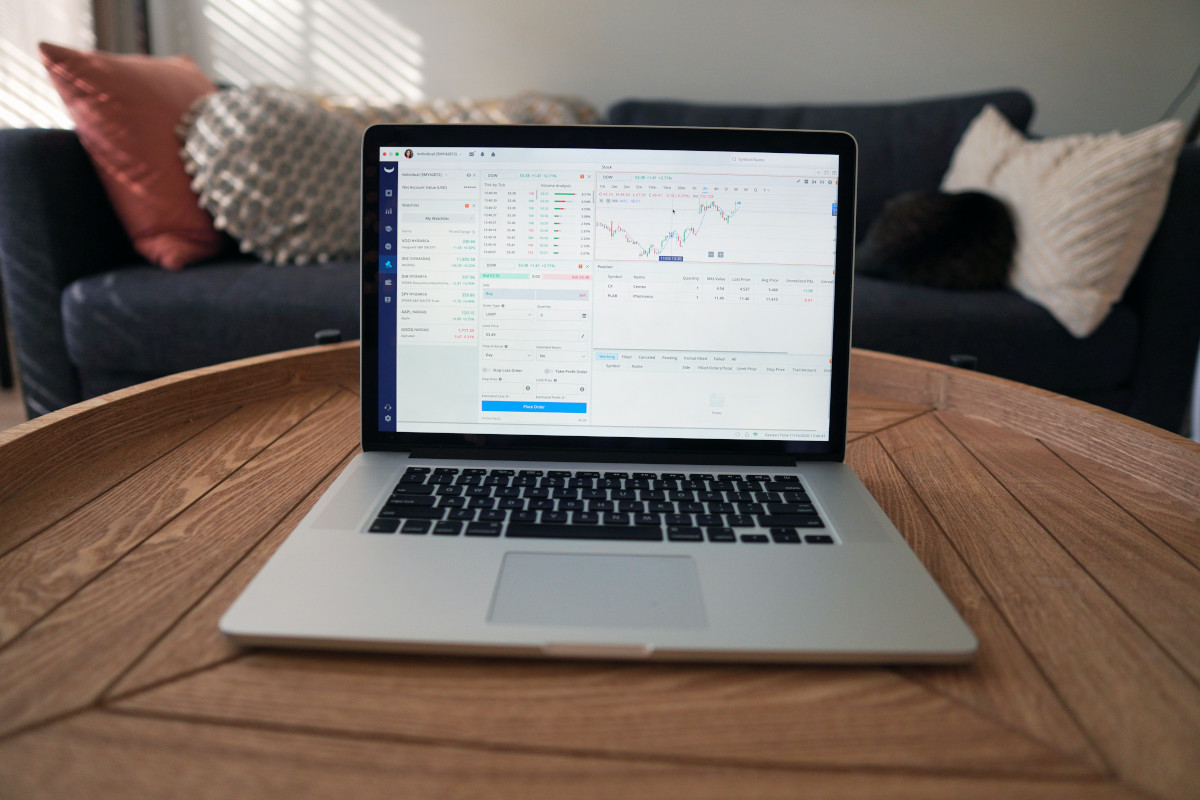In the arena of investing, confidence is key. But gaining that confidence? That’s where the challenge lies. You are likely here because you, like many investors, seek clarity amidst the swirling uncertainties of the market. One such mystery is as it pertains to timing. Specifically, when is the best time of day to buy stocks?
The thought of buying at the wrong time only to watch a potential profit slip away or worse, result in a loss, can be a daunting prospect. This fear can cause hesitation, and that hesitation can cost you. It’s a cycle many investors know all too well.
But what if there was a way to cut through the confusion, to gain a clearer understanding, and to approach the market with a newfound sense of confidence? There is – and it’s just a few clicks away at VectorVest.
Below, we’ll help you gain a more clear understanding of what time of day is best to buy stocks. You’ll learn about the 3 different periods throughout the trading session: opening hour, mid-day, and closing time.
Each of these presents different opportunities for buyers, but only one of them can be considered the “best” time of the day to buy stocks. Or, is there no “best” time of day? We’ll share our opinion on the matter shortly. First, allow us to offer a quick foreword before we get into the nitty gritty details of timing.
A Quick Foreword on the Best Time of Day to Buy Stocks…
Before we get to the root of today’s conversation and help you find the best time of the day to buy stocks, we want to quickly call out two important points.
First and foremost, your specific investment goals will influence whether timing even matters or not. And secondly, the time of day at which you purchase stocks is just one of the countless considerations to make.
First, What is Your Goal With Investing?
If your goal is long-term wealth creation, the exact time of day you buy stocks might not hold as much relevance. In this case, your focus will likely be on building a diversified portfolio filled with high-quality stocks that are expected to appreciate over years or even decades.
For long-term investors, market timing may become less about the hour of the day and more about buying during periods of market dips or finding stocks that are undervalued. This is the case if you’re investing early for retirement or following a buy-and-hold strategy.
However, if you’re day trading or swing trading, positional trading, scalping, or following any sort of strategy with the goal of earning profits in the near term – then yes, timing matters. Market timing strategies are worth learning as you can supercharge your profit potential and protect your portfolio from the downside of certain periods.
With that said, the time of day isn’t the end-all-be-all of your investment strategy…
Limitations of Relying on the Best Time of the Day to Buy Stocks
While the time of day is indeed a factor to consider when trading stocks, it’s crucial to understand that it’s just one piece of a much larger, complex puzzle.
The stock market is influenced by a host of elements – global economic indicators, geopolitical events, corporate earnings reports, and even the weather can sway stock prices! We have a complete guide on what factors can affect a stock’s price if you want to learn more.
Moreover, different stocks and sectors may exhibit different patterns and may not necessarily adhere to general market trends. For instance, a tech stock might react more dramatically to an event in the tech industry, regardless of the time of day.
In essence, while knowing the best time of day to buy stocks can be a useful tool in your trading arsenal, it should be used in conjunction with other important factors.
Ensuring you have a comprehensive understanding of the market and individual stocks will give you a much-needed edge and help you make informed decisions. Nevertheless, you came here seeking an answer. And we’ll give it to you below. So, what is the best time of day to buy stocks?
What is the Best Time of Day to Buy Stocks?
When it comes to identifying the best time of day to buy stocks, it’s essential to understand that the stock market isn’t static. It fluctuates and oscillates throughout the day, influenced by a myriad of factors that can make certain periods more conducive to buying than others. Below, we delve into the specifics of market dynamics at different times of the day.
Opening Hour Dynamics
The stock market tends to be most volatile during the first hour after the opening bell at 9:30 AM Eastern Time. This is because traders and investors are reacting to the overnight news, and institutional investors are making their opening trades. This heightened activity can cause significant price movements, creating potential buying opportunities.
However, the high volatility also means higher risk, as prices can move rapidly in either direction. Thus, if your risk tolerance is high and you feel comfortable navigating volatile market conditions, the opening hour may offer unique opportunities.
Mid-Day Market Behavior
As the morning progresses, the market usually starts to calm down, and the trading volume tends to decrease. Between about 11 AM and 2 PM Eastern Time, the market enters what many traders refer to as the “lunch hour lull.”
Price movements are generally smaller, and volatility is typically lower during this time. This quieter period could provide an opportunity for those looking for a more stable environment to make their trades. However, the decreased volume can also mean fewer opportunities for significant profits.
Closing Hour Opportunities
The final hour of trading, from 3 PM to 4 PM Eastern Time, often sees another spike in volatility and trading volume. Like the opening hour, this can be attributed to traders closing out positions and institutional investors making final trades before the market closes.
There can be opportunities to “buy the dip” if stocks experience a sell-off during this time, but similar to the opening hour, the increased volatility also means increased risk.
So, What Time of Day is Best to Buy Stocks?
Now, it’s the moment you’ve been waiting for. Of these three different periods of a trading session, what time of day is best to buy stocks?
As we’ve briefly mentioned a few times already, there isn’t a definitive answer to this question – just as with other similar questions, like when to exercise stock options or when to cut your losses. The “best time to buy stocks” largely depends on your investment strategy, risk tolerance, and the specific circumstances of the day.
Some traders thrive in the high-volatility environment of the market’s opening and closing hours, while others prefer the relative calm of the mid-day market. Ultimately, understanding these market dynamics and aligning them with your personal investment goals and risk tolerance can guide you in determining the best time for you to buy stocks.
Other Ways to Gauge Your Trades Without Relying on the “Best Time to Buy Stocks”
While the time of day is certainly a component to consider when deciding when to buy stocks, it’s important to understand that it’s just one piece of a larger picture.
Numerous other factors can significantly influence when it may be most advantageous to make your move. Let’s delve into some of these key factors below…
Role of Market Volume and Liquidity
Market volume and liquidity are crucial factors that can impact the optimal time to buy stocks. High-volume periods typically have more liquidity, meaning there’s enough market activity to buy or sell shares without significantly impacting the stock price.
Generally, periods of high volume – usually at market open and close – provide more opportunities but also come with increased volatility. On the other hand, lower volume periods might present fewer opportunities but could offer more stability.
Impact of News and Announcements
News and announcements can dramatically shift the market landscape – and they can strike at any time of day. There’s very little you can do to plan for this variable.
Corporate earnings reports, changes in executive leadership, product launches, or merger and acquisition news can all significantly affect a company’s stock price. Economic news and policy announcements can also cause broad market shifts.
If you’re aiming to buy on a dip following news or want to capitalize on a news-induced surge, timing your buy in response to these events becomes crucial.
Macro and Microeconomic Factors
Both macro and microeconomic factors can influence the best time to buy stocks. Macro factors include broader economic conditions, such as GDP growth, inflation rates, and unemployment rates. Thus, it’s important to know what happens to the stock market during a recession – or how to hedge against inflation.
On the other hand, microeconomic factors pertain to specific industries or companies. This might include a company’s financial health, its competitive position, or trends in its specific industry. You can look to EPS as a gauge of company health – something we have a complete guide on.
Technical Indicators Offer Better Insights
Technical swing trading indicators are another essential tool in an investor’s arsenal for determining the best time to buy stocks. Indicators like moving averages, relative strength index (RSI), and volume trends can provide signals about potential price movements.
In general, your goal when buying stocks is to get them at a good value that leaves you room for profit as the stock climbs higher. Thus, you want to buy in when a positive price trend is in the midst of forming – easier said than done, but that’s where these indicators come in.
They can help you gain insights into when a negative price trend is on the brink of reversing. That way, you can feel confident adding a stock to your portfolio. Combining these indicators with an understanding of the market’s daily rhythm can help refine your timing for buying stocks.
However, tracking and interpreting these factors requires time, effort, and a fair bit of experience – factors that can make this task quite daunting for many investors. As we promised in the first few sentences of this article, it’s time to introduce you to a superior solution that helps you time your trades while removing emotion and guesswork from your strategy…
Effortlessly Time Your Trades and Remove Emotion/Guesswork With VectorVest!
Even knowing the best time of day to buy stocks, you can feel a bit lost when it comes time to actually sit down in front of your screen and undertake stock analysis. You may find yourself struggling to actually pull the trigger and execute your strategy. That’s where we come in to transform your trading experience for the better.
Our stock analysis software is trusted by the most successful swing traders and beginner investors alike as an accurate, consistent beacon of guidance. It tells you exactly what to buy – but more importantly, it tells you when to buy it and when to sell it! It’s really that simple.
The system is based on proprietary algorithms that have outperformed the S&P 500 by 10x for more than 20 years now. It can help you do the same. We’ve been calling every major market move since the Dot-com bubble – wouldn’t it be nice to follow along as we pave the way in the future? With our stock advisory app, you can.
But, what really makes this the best stock analysis app is how quick and easy following the system is. No more tracking complex technical indicators, no more hours spent in front of your screen conducting research. Instead, you just rely on three simple ratings: relative value (RV), relative safety (RS), and timing (RT). Each of these sits on a scale of 0.00-2.00 for quick and easy interpretation.
The most important as it pertains to finding the best time of the day to buy stocks is the RT rating. It gives you a clear understanding of the trend behind a stock – is it rising? Is it falling? Or, is it neutral?
An indicator above the average of 1.00 indicates a strong price trend with momentum, while an indicator falling below the average suggests the opposite. The ease with which you can rely on it makes it the best market timing indicator.
Beyond helping you time your trades, the system can help you uncover the best stocks to swing trade on any given day with a pre-curated list of screeners. Or, find stocks that align with your goals for investment after retirement. No matter what you use the stock market for, VectorVest is an invaluable asset in your arsenal. See it in action with a free stock analysis today.
Closing Out Our Conversation on the Best Time of Day to Buy Stocks
At this point, it’s time to close out our conversation on the best time of day to buy stocks. The trading session can be broken into three different sections: opening hour, mid-day trading, and closing hour.
Each of these windows has its own unique opportunities – but determining when to buy stocks based on these windows could result in missed profits. That’s why you should use the time of day as just one consideration in your trading strategy. Or better yet, simplify your strategy with VectorVest.
It’s not just the best swing trading platform – it’s a game-changer for any style of investing. And you’re just a few clicks away from seeing what a difference it can make in your strategy. So, what are you waiting for? Set up your account today and start earning more profits with less work and stress!







Leave A Comment